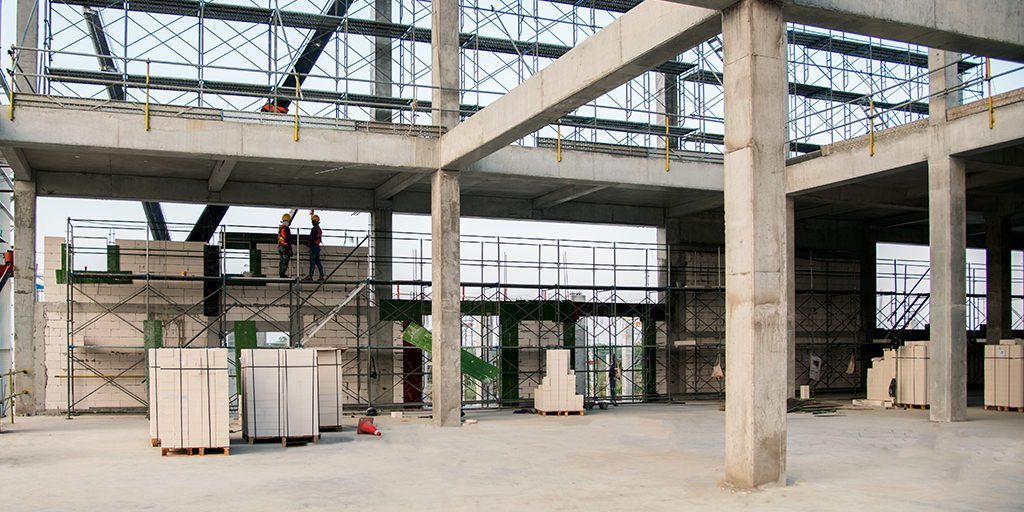
With 2022 rapidly approaching, the construction industry is taking stock of upcoming challenges and opportunities in the market. The effects of the COVID-19 pandemic are still at play as firms look for ways to navigate a difficult labor market, overcome supply chain obstacles, and work more efficiently.
Each year, the Associated General Contractors of America (AGC) and Autodesk survey a broad cross section of construction firms to find insights on today’s workforce. Findings from the 2021 Autodesk and AGC Workforce Survey shed light on many of the relevant challenges to be aware of in the coming year, such as labor shortages, project delays, and the rising costs of materials. It also highlights positive emerging trends, including an increased focus on training and development as well as a rise in technology adoption.
Over 2,100 construction professionals participated in the 2021 Autodesk and AGC Workforce Survey from July to August of this year. Represented firms provide building, highway and transportation, federal construction, and utility infrastructure services. Revenue sizes range from under $50 million to over $500 million. This broad sampling of organizations provides a comprehensive look into the industry’s current obstacles and opportunities.
Respondents from across the country revealed that labor shortages still remain a challenge—reporting difficulty in filling nearly every type of position. In fact, there are more openings for craft and salaried positions than there were a year ago.
In last year’s survey, 76% of firms that employ hourly craft workers reported having at least one craft position unfilled. Today, the statistic has increased to 90%. The need to fill salaried positions has also increased, with 62% of firms reporting having openings for these roles. Last year, 42% reported the same.
Eighty-nine percent of survey respondents say they have a hard time filling hourly craft positions. The hardest hourly roles to hire for are pipelayers (cited by 91% of firms). Bricklayers, concrete workers, installers other than drywall, or truck drivers follow close behind at 88%.
Eight-six percent of respondents say they struggle to fill open salaried positions. The most difficult to hire salaried roles are project manager and supervisor positions, cited by 79% of firms. On the other hand, fewer than 40% of firms reported difficulty hiring technology and software/database personnel.
What are the drivers behind the labor shortage in the construction industry? Firms report two key reasons: a lack of qualified candidates and unemployment insurance supplements.
As for recalling furloughed employees, the results are mixed. Of the 25% of firms that have attempted to do so, only 40% say all furloughed employees reported when recalled. The lack of recall varies from unemployment benefits to coronavirus concerns and family responsibilities to unknown reasons.
Construction firms are employing different strategies to boost the labor market. Nearly one-third have increased spending on training and professional development. Seventy-three percent have increased base pay rates. A little over a third have offered hiring bonuses and incentives.
Thirty-seven percent are reaching out to career-building programs at high schools and collegiate or technical programs. Nearly a third of firms are using online strategies such as Instagram Live to engage with young applicants. Others, roughly 25%, are connecting with government workforce development and unemployment agencies to find applicants. One out of every four firms is leaning on software to help track incoming applications.
Project delays continue to be a problem for construction firms. Eighty-eight percent of firms experience project delays, with 75% citing longer lead times or material shortages and 57% reporting delivery delays. Supply chain challenges have led to project changes, postponements, and cancellations for over half of all firms surveyed.
Even when firms can access materials, they face increasing costs. The rising material prices have affected projects for 93% of construction firms.
These challenges have left many industry professionals wondering when they can expect revenues to return to pre-pandemic levels. In our 2020 survey, 38% of firms reported that they believed it would take six months for their business to return to 2019 levels. 26% of firms in the 2021 survey expect it will take six months to match or exceed year-earlier levels, while 17% are unsure when to expect things to go back to “normal.”
In part to offset some of the current industry challenges, construction firms are relying on new technologies. The majority of firms, 57%, say that technology adoption has increased over the past year. An even greater percentage, 60%, anticipate this rate to continue to rise in the next 12 months. The most popular technology investments include:
Allison Scott, Director of Construction Thought Leadership and Customer Marketing at Autodesk, shared in the news release for the 2021 survey, “The continued investments in hiring, training, and technology highlighted in this year’s study show that even while dealing with ongoing challenges nearly two years into the pandemic, the industry remains committed to building better with a resilient workforce.”
If you’d like to discuss the findings of this year’s research and or other industry related topics, please join us in The Big Room, Autodesk’s community of construction professionals.
